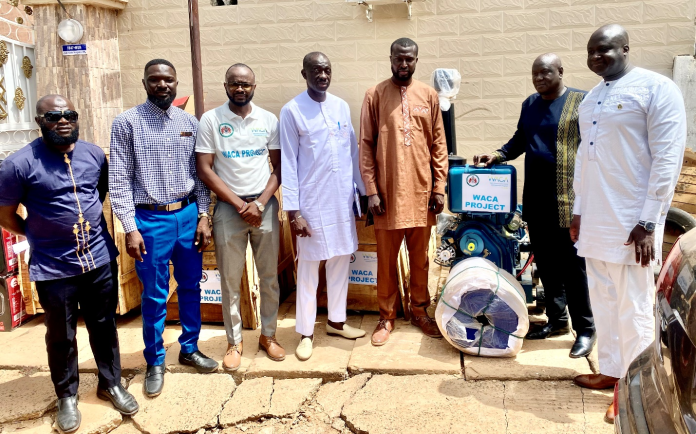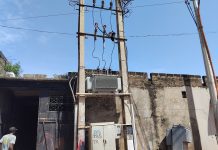By Mustapha Jallow
The West Africa Coastal Areas Resilience Investment Project 2 (WACA ResIP) on Tuesday donated 34 flood pumping machines to the National Disaster Management Agency, Kanifing Municipal Council, and Brikama Area Council to effectively respond to and manage flood and other disasters around the Kotu stream and beyond.
The pumps, according to WACA, are intended to be deployed to flooded communities to help pump water out of homes during inundations. The project is under the Ministry of Environment, Climate Change, and Natural Resources of the Gambia.
The pumps comprise 30 small machines with a capacity to pump 6000 liters of water in an hour. The WACA machines will be distributed to communities along the Kotu stream through their ward councilors.
On the other hand, the project also gives four heavy-duty machines with a capacity to pump more than 500,000 liters of water to NDMA (2) KMC and BAC each.
The machines were procured as part of the short-term interventions of the WACA Project which also involves the clearing of the entire length of the 11.2 km Kotu stream of waste, silt, and vegetation, clearing of illegal waste dumps and clearing of more than 3.0 kilometers of drains connecting to the stream.
The overall goal of these initiatives is to prevent/mitigate flooding and pollution in communities along the Kotu Stream and beyond during the rainy season and protect lives and properties.
Held at its office in Pipeline on June 25th, 2024, according to the officials, WACA is a World Bank-funded regional project currently being implemented by countries such as the Gambia, Benin, Côte d’Ivoire, Ghana, Guinea-Bissau, Mauritanian, São Tomé and Principe, Senegal, and Togo.
Speaking on behalf of the environment minister, Ebrima Jawara — the permanent secretary for the same ministry explained how Gambia suffered for many years with flooding and other disasters.
“We have watched how the scourge of flooding has ravaged homes, sea lives and displaced thousands of families in communities along the Kotu stream and beyond,” he said. He added: “So when we launched the WACA project last year, there was palpable optimism.”
According to Jawara, these machines are meant to bring relief to communities, saying operators of the machines must take extra precautions — to ensure that when water is pumped out of homes and communities, it is emptied into waterways to avoid inundating other places.
He said WACA will also work with the National Roads Authority to develop national drainage standards, describing it as a crucial step towards reducing flooding and damage to Gambian roads.
“We will continue to implement the laws, policies, and strategies that help protect and preserve our natural resources,” Jawara stated.
“All these flood risk mitigation measures are a direct response to the appeals of communities and local authorities during our extensive consultations with our stakeholders and community engagements in our project intervention area,” remarked Masanneh Landing Ceesay, the Monitoring & Evaluation Specialist for WACA.
“We are also aware that disaster risk reduction and resilience building require much more – they require a multifaceted approach that includes early warning systems and community engagement,” he added.
For his part, Yankuba Darboe, chairman of BAC thanked the environment ministry, most particularly the World Bank.
He said this timely gesture— would decrease and minimize the risk of flooding in the Kotu steam area, thereby protecting lives and livelihoods along that steam area.
“We assure you all that we the beneficiaries and recipients of these pumping machines would do everything within our powers to ensure that they are put to proper use and properly maintained as well for future uses,” Darboe assured.




















